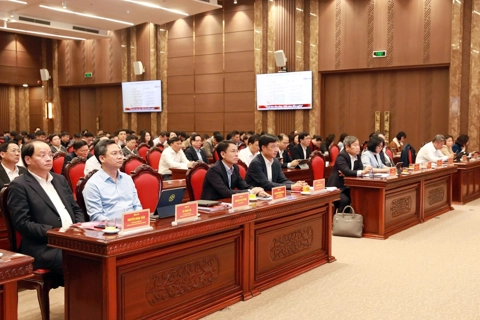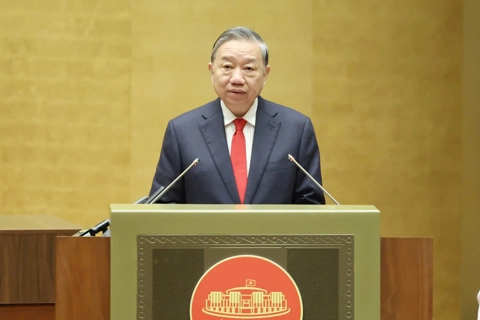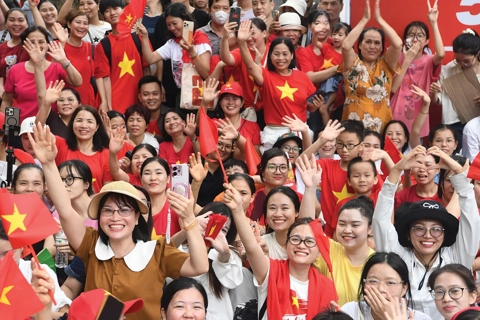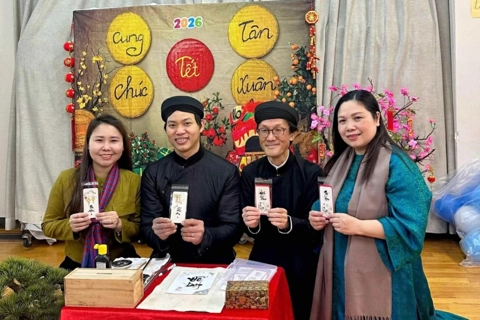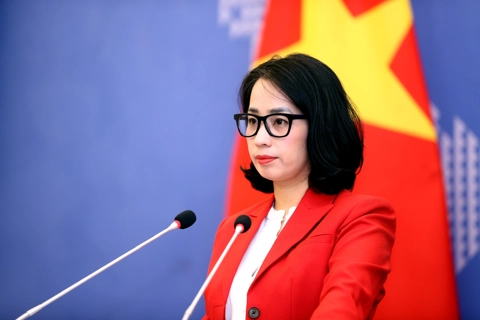Vietnamese pagodas ring bells to prayer for national peace and prosperity
Today's event coincided with the official implementation of the new two-tier local government, marking a significant milestone in Vietnam’s administrative reforms.
THE HANOI TIMES — At exactly 6 AM today, bells and drums rang three times simultaneously at thousands of pagodas and monasteries across Vietnam, marking a historic spiritual event in support of national peace, prosperity, and unity.
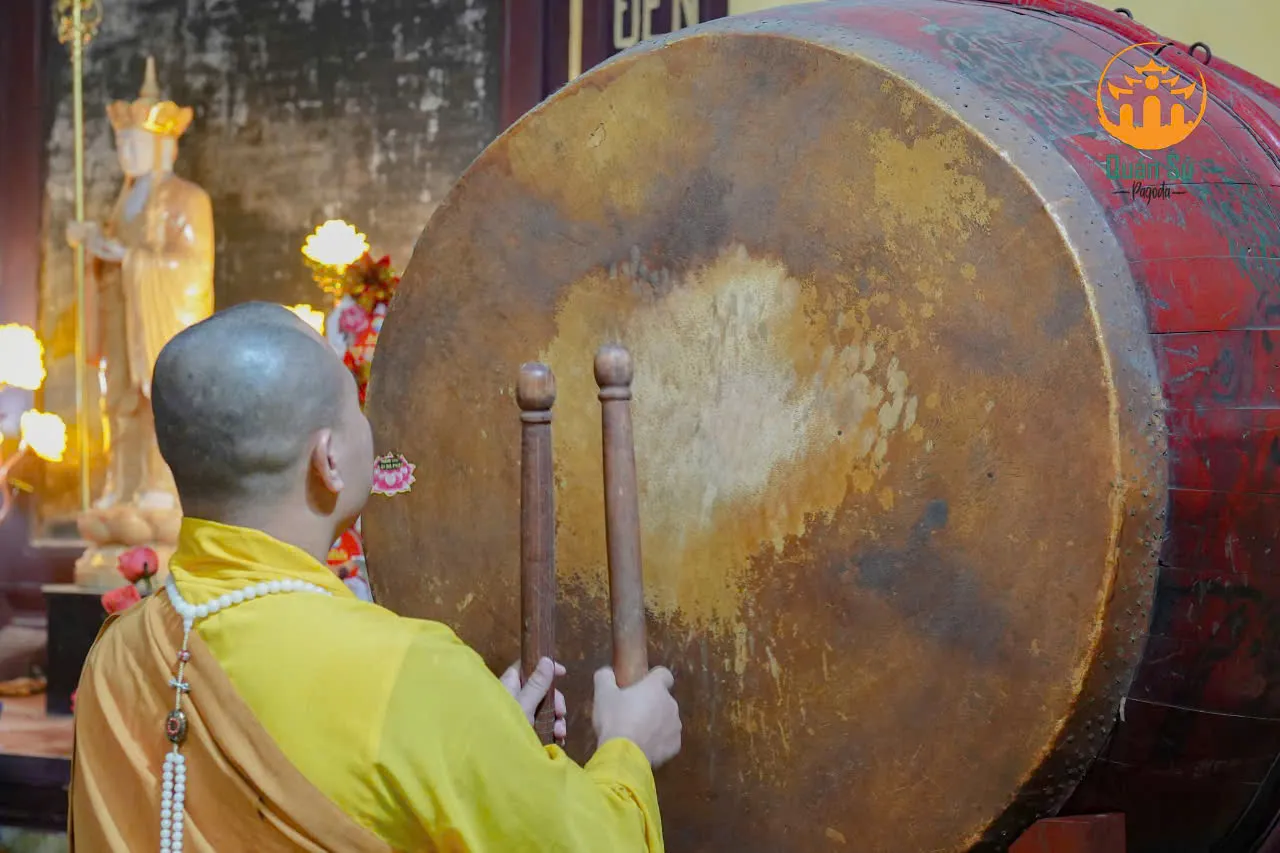
All pagodas and monasteries ring bells and drums in unison on the morning of July 1. Photo: Quan Su Pagoda
The Vietnam Buddhist Sangha initiated this nationwide ceremony requesting all pagodas and monasteries ring bells and drums in unison on July 1, representing a collective prayer for national harmony, favorable weather, and a smooth transition into a new era of governance and development, coinciding with Hanoi’s official shift to a two-tier local government model and the launch of a streamlined administrative structure that reduces commune-level units from 526 to 126 across the city.
In the capital city, venerable monks at Tran Quoc Pagoda, one of the country's oldest pagodas, began the ritual at 6 AM, striking the bell and drum three times. Originally named Khai Quoc, meaning "Opening the Country," the ancient temple was renamed Tran Quoc during the reign of King Le Hy Tong (1681–1705) and holds significant historical and spiritual value.
"I arrived at Tran Quoc Pagoda at 5:30 AM to witness the bell-ringing ceremony on the first day of the two-level local government," said Thanh Hang, a 59-year-old Hanoi resident.
At Due Tu Pagoda in Nghia Do Ward, another historically significant site dating back to the Ly Dynasty (1072–1128), dozens observed silent reverence. Tran Van Nghia from Cua Nam Ward shared: "Standing in this ancient courtyard and hearing the bell at this sacred moment fills me with pride. It is a deeply emotional experience as our country enters a new phase of renewal.”
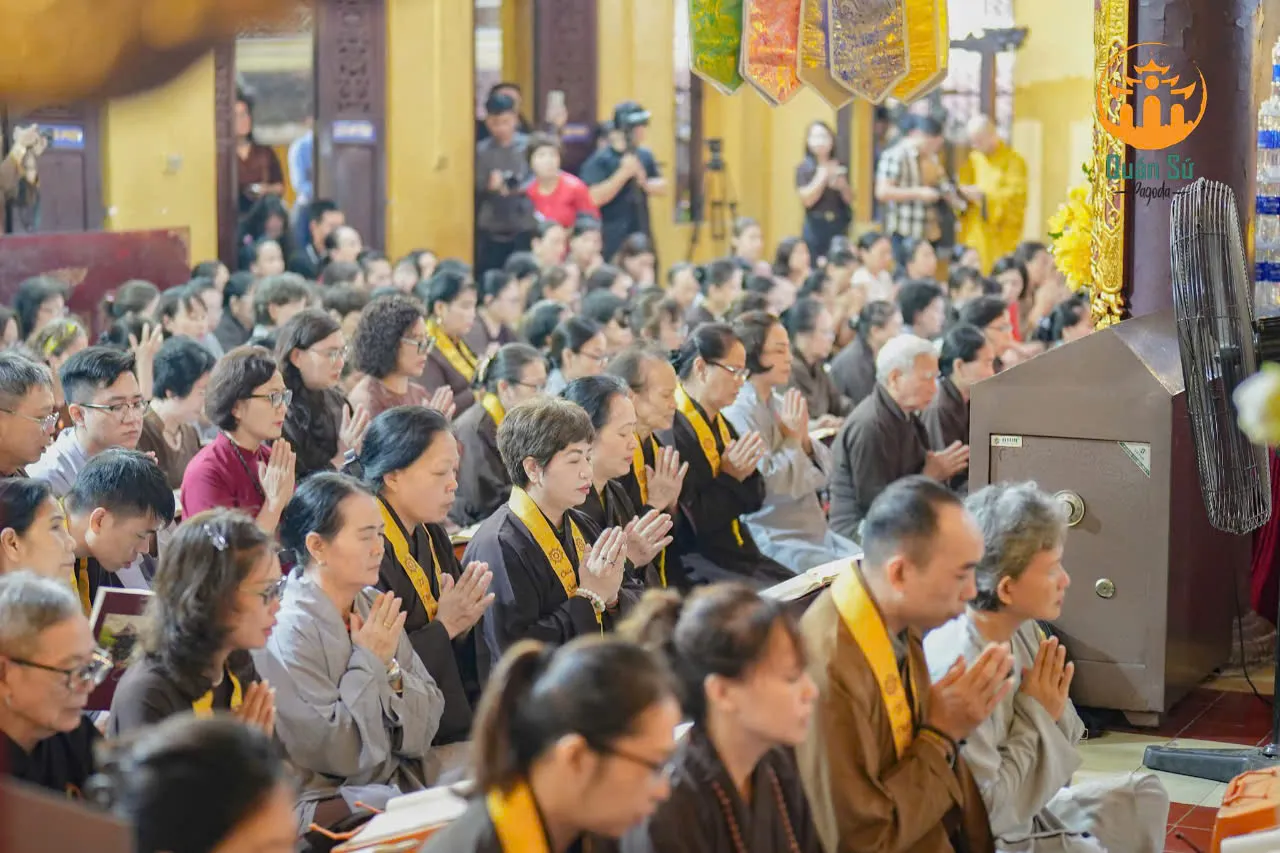
People gather to pray for national peace and prosperity at Quan Su Pagoda. Photo: Quan Su Pagoda
Meanwhile, Phuong Loan, a resident from Tay Ho Ward, added: "When I heard that pagodas nationwide would ring bells at 6 AM, I made sure to be present. Hearing the sound of the bell during this historic moment filled me with both joy and emotion.”
From the Quan Su Pagoda in downtown Hanoi, the headquarters of the Vietnam Buddhist Sangha, to the Tran Quoc Pagoda in Tay Ho Ward, the Yen Tu in Quang Ninh Province, the Tam Chuc Pagoda in Ninh Binh Province, and other notable sites, the sound of sacred bells reverberated in harmony across the country. Afterwards, monks and devotees performed sutra recitations and spiritual rituals dedicated to national peace, prosperity, and unity.
While most pagodas adhered to the 6 AM schedule, others adjusted the timing slightly to align with morning prayer routines. The public was encouraged to visit their local temples to observe the spiritual event and witness what the Vietnam Buddhist Sangha described as a momentous historical turning point.
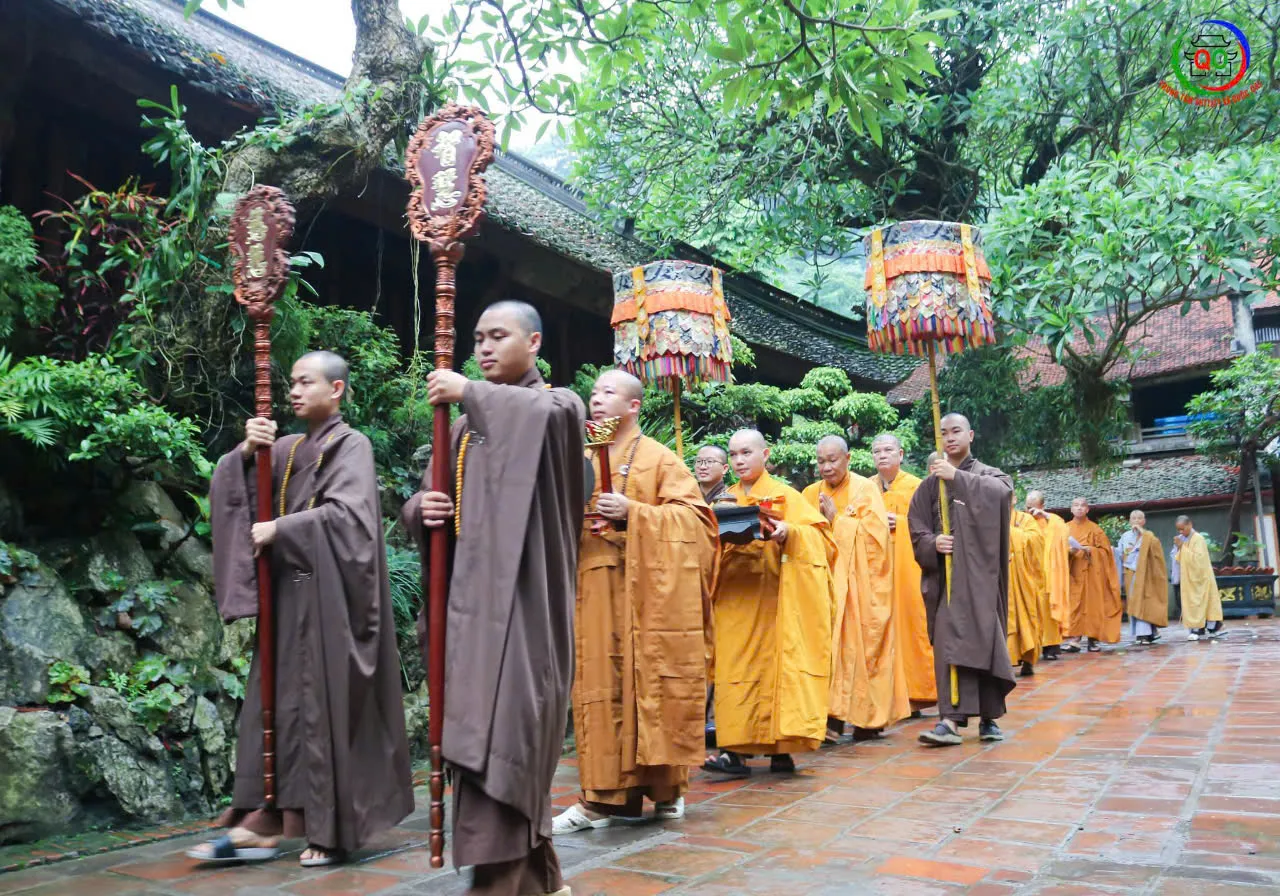
The ceremony to pray for national peace and prosperity at Thay Pagoda. Photo: Cultural Information Center of Quoc Oai District
The simultaneous bell-ringing ceremony took place on the first day that the country officially adopted a two-tier local government, following a National Assembly resolution that reorganized the administrative structure. This reform reduced the number of provinces and cities from 63 to 34, seeking to streamline governance and improve efficiency.
The Vietnam Buddhist Sangha emphasized the spiritual significance of this transformation, describing it as an "extremely special historical event" that ushers in a new period of national development. The Sangha noted that ceremonies featuring bell ringing, chanting the Heart Sutra, and collective prayer are traditionally held during national holidays and religious festivals such as Buddha’s Birthday, Vu Lan (Hungry Ghost Festival), and War Invalids and Martyrs Day on July 27.
According to 2021 data from the Sangha, Vietnam is home to between 18,000 and 20,000 pagodas, monasteries, meditation centers, and prayer halls. The participation of these spiritual institutions in today's event highlights the ongoing influence of Buddhism in Vietnamese culture and society.







